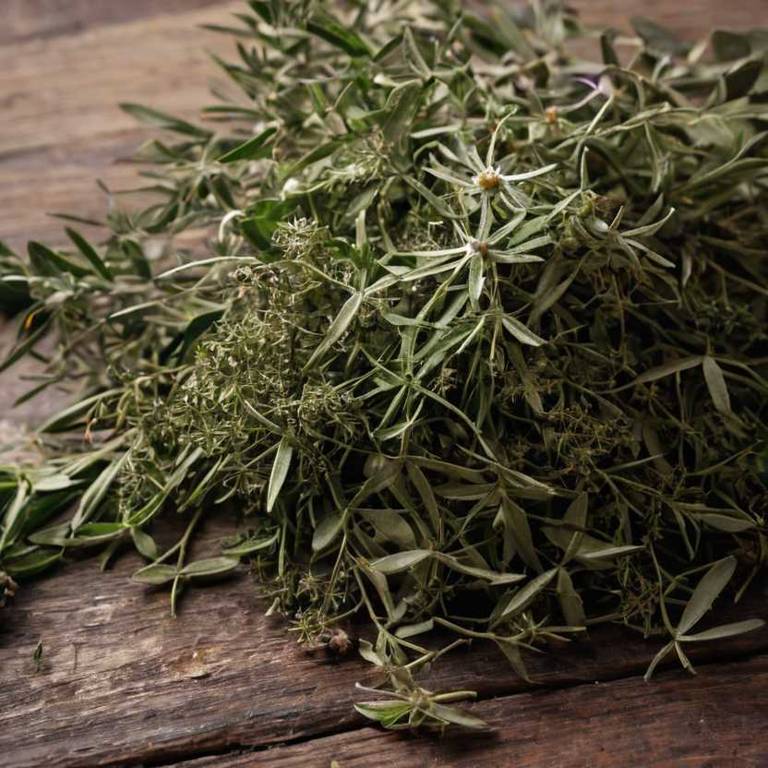By Leen Randell
Updated: Jul 05, 2024
What Are The Medicinal Properties Of Olea Europaea (Olive)?

Olea europaea, also known as olive, has health benefits such as reducing inflammation, improving cardiovascular health, and inhibiting cancer cell growth.
Its medicinal constituents include oleuropein, hydroxytyrosol, and oleocanthal, which are responsible for its antioxidant and anti-inflammatory properties. Various medicinal preparations of olive include olive oil, leaf extracts, and capsules. Side effects of olive consumption can include gastrointestinal upset and allergic reactions.
Precautions include consulting a healthcare professional for interactions with medications and pregnant/breastfeeding individuals.
This article explains the health benefits, active constituents, medicinal preparations, possible side effects, and precautions related to Olea europaea.
What are the health benefits of Olea europaea?
Olea europaea, also known as olive, has health benefits such as reducing inflammation and improving cardiovascular health due to its high levels of monounsaturated fatty acids.
The antioxidants in olive oil have also been shown to have anti-cancer properties and may help protect against neurodegenerative diseases like Alzheimer's and Parkinson's. Additionally, olive oil may aid in weight management and support immune function.
Regular consumption may also reduce the risk of certain cancers.
Here's a detailed article about the 10 health benefits of Olea europaea.
What are the active constituents of Olea europaea?
Olea europaea, also known as olive, has active constituents such as oleuropein, hydroxytyrosol, and oleocanthal, which are responsible for its medicinal properties.
Oleuropein has been shown to have anti-inflammatory, antimicrobial, and antioxidant effects, while hydroxytyrosol has potent antioxidant and anti-inflammatory properties. Oleocanthal, a polyphenolic compound, has anti-inflammatory and antioxidant activities, making it a potential agent for preventing and treating various diseases.
These compounds are responsible for the olive's potential health benefits.
Here's a detailed article about the 10 active constituents of Olea europaea.
What are the medicinal preparations of Olea europaea?
Olea europaea, also known as olive, has medicinal preparations such as olive oil, which is rich in antioxidants and is used to treat various ailments, including skin conditions, wounds, and digestive issues.
The leaves of the olive tree are used to prepare a herbal tea that is used to treat fever, hypertension, and inflammation.
Additionally, olive extracts are used in pharmaceuticals to reduce the risk of heart disease and certain types of cancer.
Here's a detailed article about the 10 medicinal preparations of Olea europaea.
What are the possible side effect of using Olea europaea improperly?
Improper use of Olea europaea, also known as olive, increases the chances of experiencing side effects such as stomach upset, diarrhea, and vomiting due to its high polyphenol and fatty acid content.
Excessive consumption can also lead to allergic reactions, including skin irritation and hives.
Furthermore, it may interact with certain medications, such as blood thinners, and exacerbate conditions like high blood pressure and kidney disease.
Here's a detailed article about the 10 most common side effects of Olea europaea.
What precautions to take when using Olea europaea medicinally?
Before using Olea europaea, also known as olive, for medicinal purposes, you must take precautions such as consulting a healthcare professional to determine the correct dosage and potential interactions with other medications.
Additionally, pregnant or breastfeeding women should exercise caution, as the effects of olive oil on fetal development or infant growth are not well understood.
Quality and purity of the oil also matter, so choose reputable sources.
Here's a detailed article about 10 precautions to take when using Olea europaea.